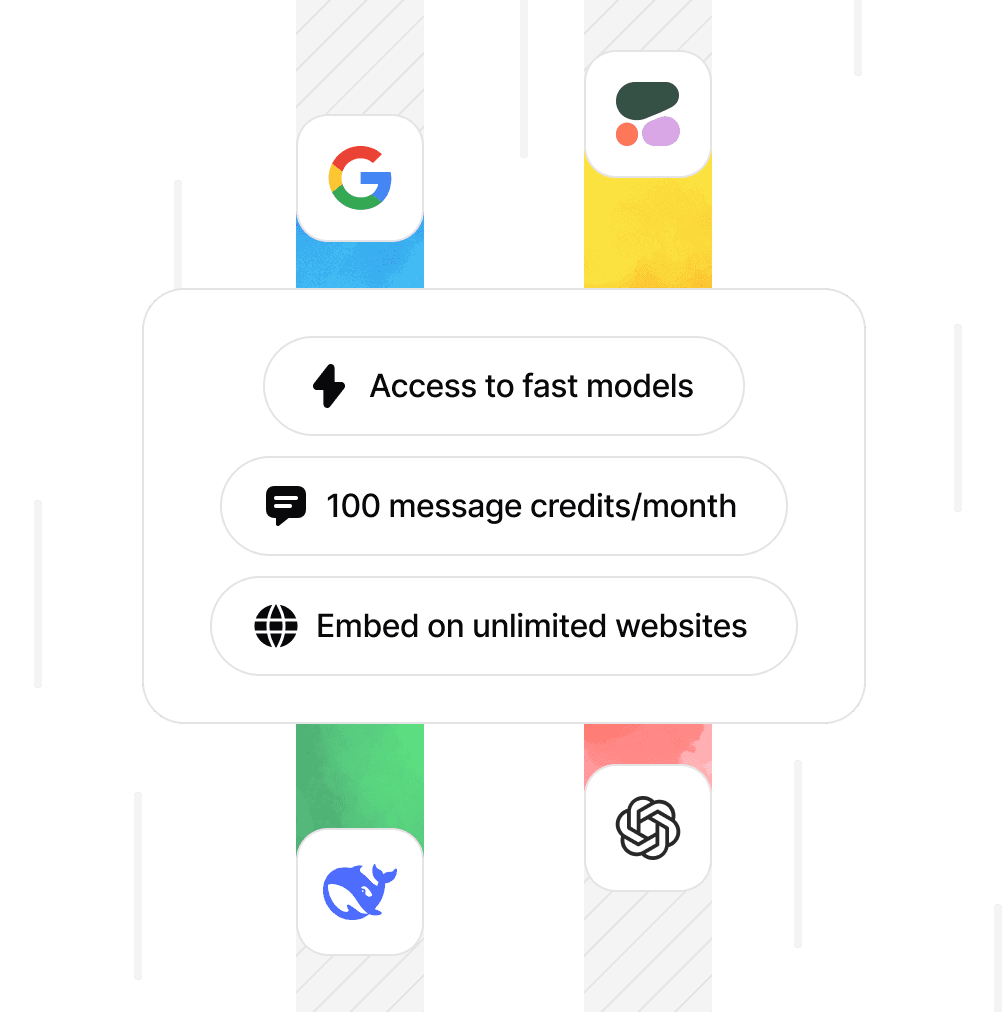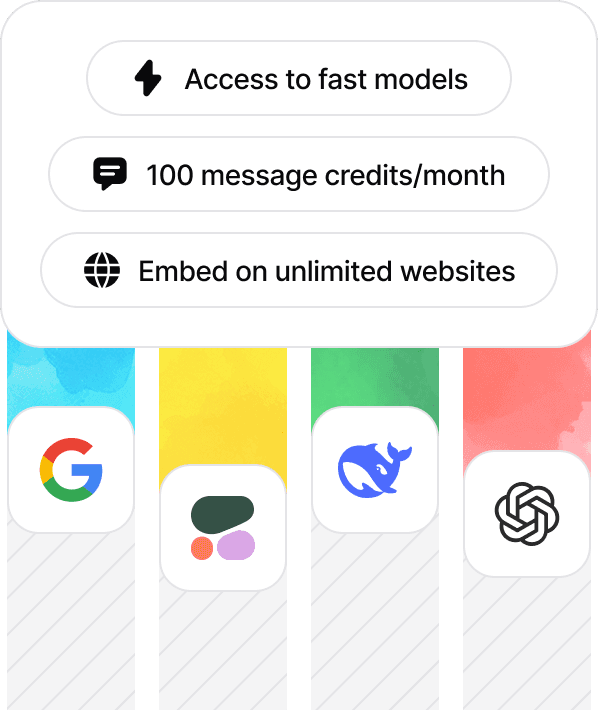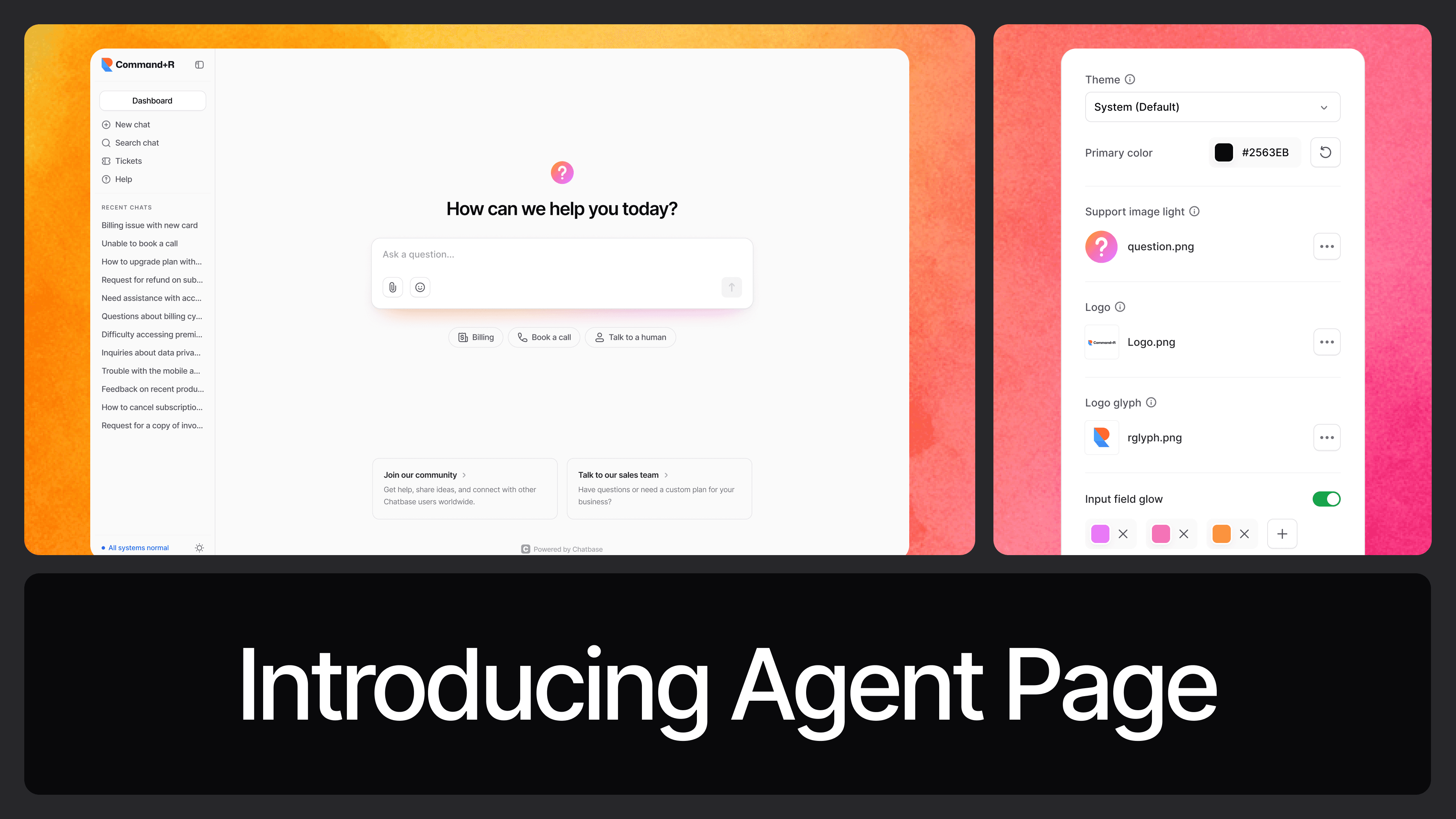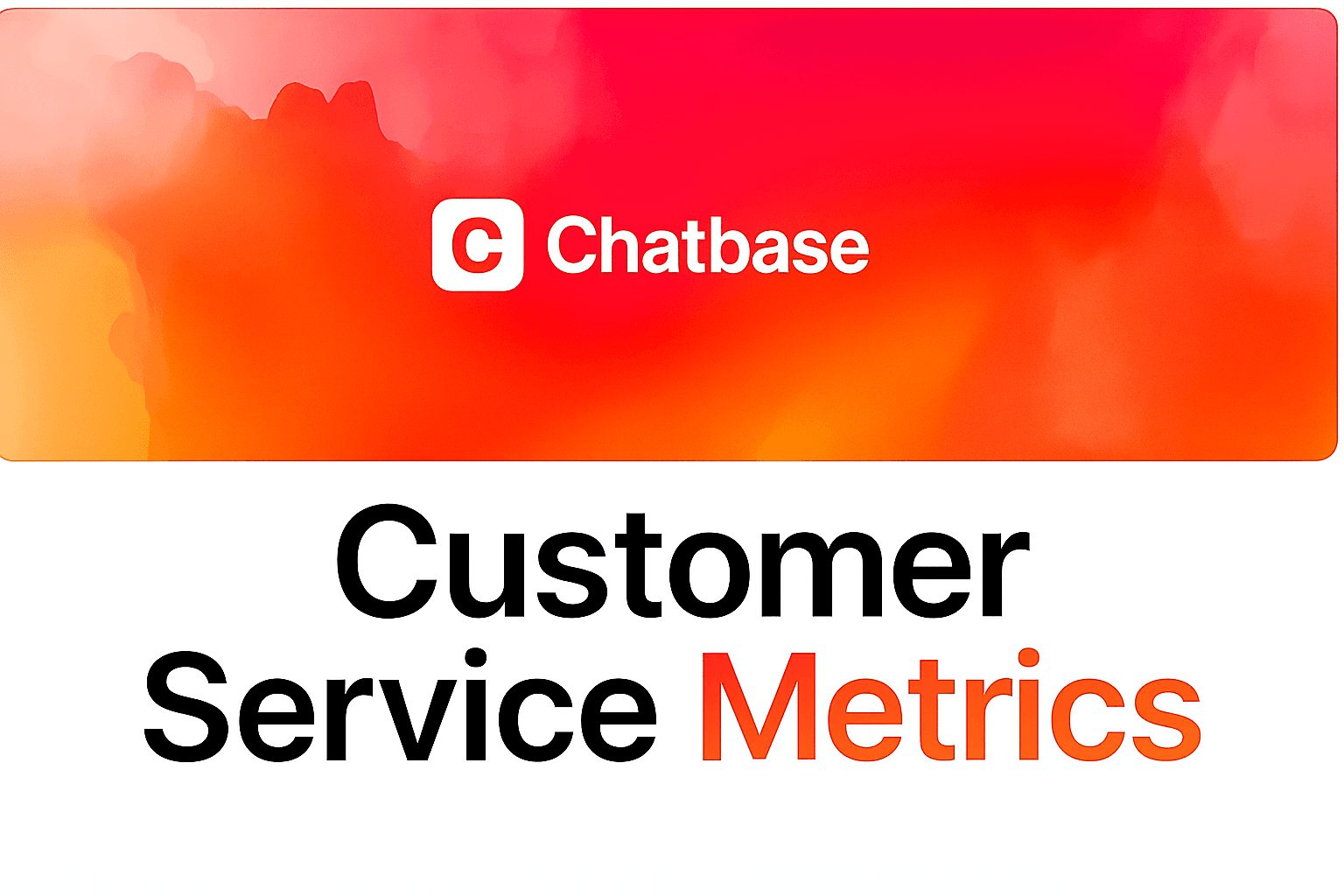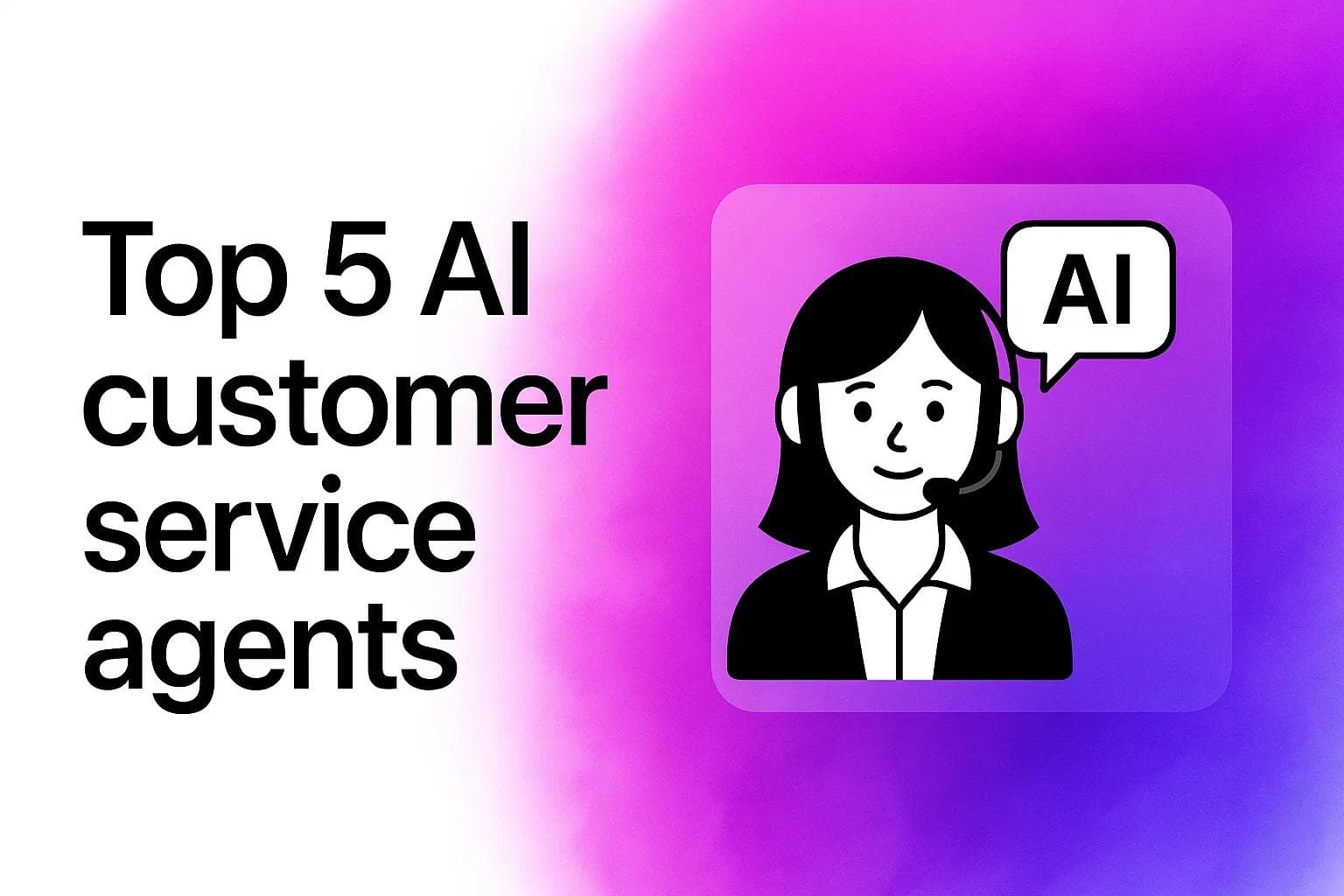AI Agent Development: The Ultimate Guide (2025)
Ilias Ism
Nov 8, 2024
12 min read
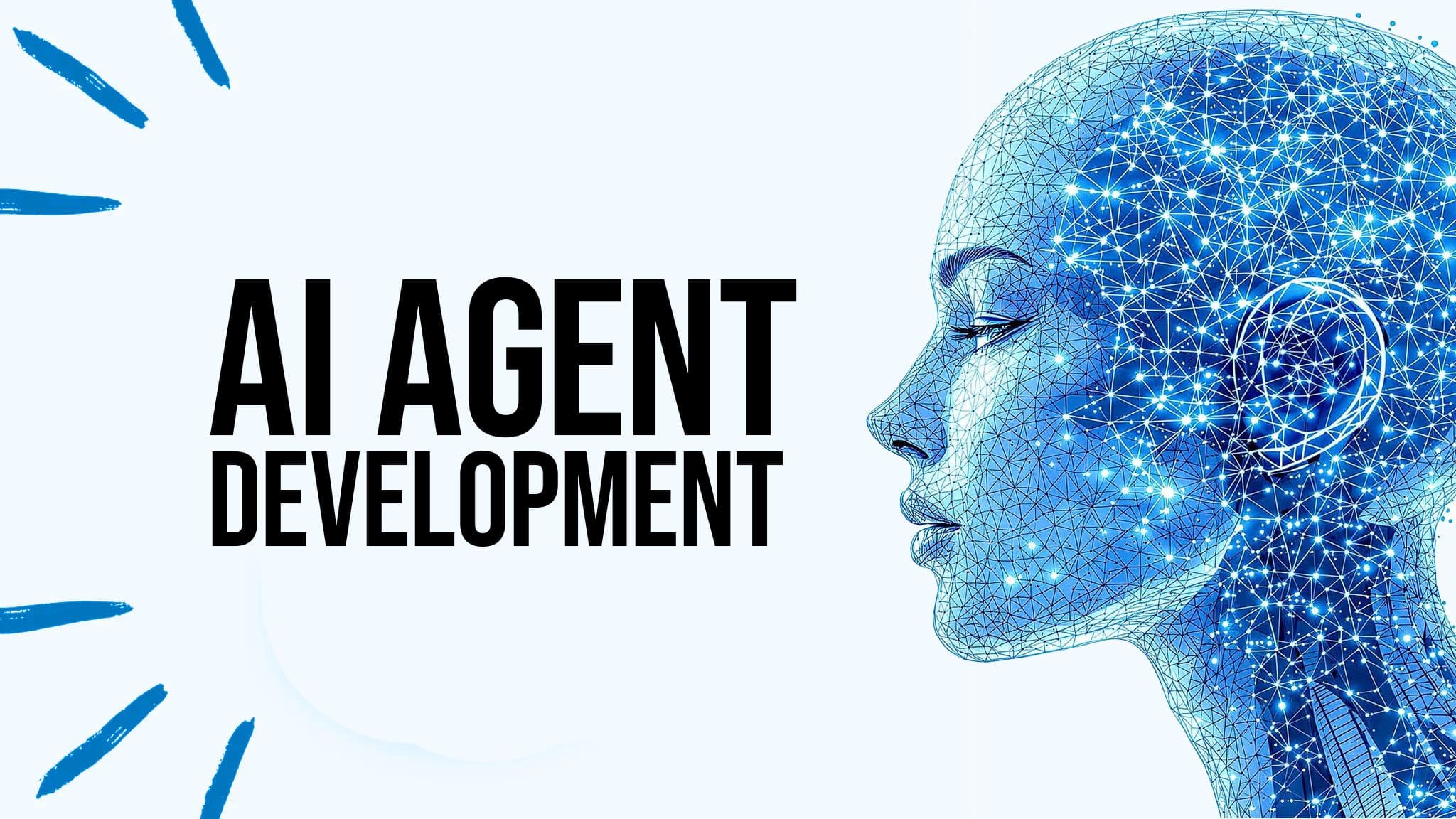
Artificial Intelligence (AI) agents are revolutionizing how businesses operate and interact with customers. As we approach 2025, which OpenAI CEO Sam Altman has dubbed "the year of the AI agent," the importance of these autonomous systems is growing rapidly. This guide aims to demystify AI agents and provide a comprehensive roadmap for developing your own, from understanding core concepts to deploying production-ready systems.
At Chatbase, we're at the forefront of this AI revolution. While we started as an AI chatbot builder, we're expanding our platform to support the development of sophisticated AI agents. Our goal is to make AI agent creation accessible to everyone, from tech-savvy developers to business owners looking to innovate.
Try out our platform here and build your first AI agent in just 5 minutes!
What are AI Agents?
AI agents are intelligent software systems designed to perceive their environment, make decisions, and take actions to achieve specific goals.
Unlike traditional software applications that simply follow predefined instructions, AI agents can learn, adapt, and operate autonomously in complex, dynamic environments.
The core components of an AI agent include:
- Sensors: These allow the agent to perceive its environment, gathering data and inputs.
- Actuators: These enable the agent to perform actions that affect its environment.
- Agent Function: This is the "brain" of the agent, mapping sensory inputs to actions.
AI agents can be categorized into several types based on their complexity and capabilities:
- Reactive Agents: The simplest type, these agents respond directly to current inputs without considering past events or future consequences.
- Limited Memory Agents: These agents can store and use past experiences to inform decisions.
- Theory of Mind Agents: More advanced agents that can understand and predict the mental states of other agents or humans.
- Self-aware Agents: The most sophisticated (and currently theoretical) type of AI agents that possess consciousness and self-awareness.
In practical applications, AI agents are transforming industries by automating complex tasks, providing personalized experiences, and making data-driven decisions at scale.
From customer service chatbots to autonomous vehicles, AI agents are becoming integral to modern business operations and technological innovation.
AI Agent Development Environment
Pro-tip: Skip the setup and build an AI agent in 5 minutes with Chatbase.
For those who prefer a hands-on approach, setting up your development environment is the first step in creating AI agents. Here's a step-by-step guide:
1. Install Python: Download and install Python from the official website. Verify the installation by running python --version in your terminal.
2. Create a Virtual Environment: python -m venv myenv
3. Activate the Virtual Environment:
- On macOS/Linux: source myenv/bin/activate
- On Windows: myenv\Scripts\activate
4. Install Essential Libraries: pip install openai httpx langchain requests python-dotenv numpy
5. Set Up API Keys: Create a .env file in your project directory and add your API keys: `OPENAI_API_KEY=your_openai_api_key_here`
6. Access API Keys in Code:
import.py
1import os2from dotenv import load_dotenv34load_dotenv()5openai.api_key = os.getenv('OPENAI_API_KEY')
7. Set Up LangSmith for Debugging (optional): LangSmith is a powerful tool for debugging and monitoring AI agents. Follow the LangSmith documentation for setup instructions.
With this environment set up, you're ready to start building your AI agent!
Developing Your First AI Agent
1import openai2import re3import httpx45class AIAgent:6 def __init__(self, system_prompt):7 self.system_prompt = system_prompt8 self.messages = [{"role": "system", "content": system_prompt}]9 self.actions = {10 "search": self.search_wikipedia,11 "calculate": self.calculate,12 "get_weather": self.get_weather13 }1415 def search_wikipedia(self, query):16 response = httpx.get("https://en.wikipedia.org/w/api.php", params={17 "action": "query",18 "list": "search",19 "srsearch": query,20 "format": "json"21 })22 return response.json()["query"]["search"][0]["snippet"]2324 def calculate(self, expression):25 return eval(expression)2627 def get_weather(self, city):28 # Implement weather API call here29 return f"Weather data for {city}"3031 def execute(self, user_input):32 self.messages.append({"role": "user", "content": user_input})3334 while True:35 response = openai.ChatCompletion.create(36 model="gpt-3.5-turbo",37 messages=self.messages38 )39 assistant_message = response.choices[0].message.content40 self.messages.append({"role": "assistant", "content": assistant_message})4142 action_match = re.search(r'Action: (\w+): (.*)', assistant_message)43 if action_match:44 action, action_input = action_match.groups()45 if action in self.actions:46 result = self.actions[action](action_input)47 self.messages.append({"role": "system", "content": f"Observation: {result}"})48 else:49 self.messages.append({"role": "system", "content": f"Error: Unknown action {action}"})50 else:51 return assistant_message5253# Usage54agent = AIAgent("You are a helpful assistant that can search Wikipedia, perform calculations, and check the weather.")55response = agent.execute("What's the capital of France and what's its current temperature?")56print(response)
This example demonstrates a basic AI agent that can:
- Search Wikipedia for information
- Perform calculations
- (Hypothetically) check weather data
The ReAct pattern is implemented in the execute method, where the agent reasons about the input, chooses an action, observes the result, and continues this loop until a final answer is ready.
Advanced Techniques and Best Practices
To create more sophisticated AI agents, consider implementing these advanced techniques:
- Memory Management:
- Short-term memory: Use a list or queue to store recent conversation turns.
- Long-term memory: Implement vector databases like Pinecone or Weaviate for persistent storage. And use RAG.
- Long-Term Planning: Integrate planning algorithms to handle multi-step tasks. Libraries like MCTS can be useful for this.
- Tool Integration: Expand your agent's capabilities by integrating more advanced tools, such as Wolfram Alpha for complex calculations or Google's Custom Search API for web searches.
- Knowledge Base Integration: Connect your agent to external knowledge sources like databases or FAQs to improve accuracy and relevance.
- Testing and Debugging:
- Implement unit tests for individual components.
- Use integration tests to verify interactions between components.
- Employ LangSmith for comprehensive debugging and tracing of agent execution.
- Optimization:
- Fine-tune LLM parameters like temperature and top_p for better performance.
- Profile your code and optimize for efficiency, especially in loops and API calls.
- Error Handling and Fallbacks: Implement robust error handling to gracefully manage API failures, unexpected inputs, or tool errors.
- Security Considerations:
- Sanitize user inputs to prevent injection attacks.
- Implement rate limiting and authentication for exposed APIs.
- Use secure methods to store and access API keys and sensitive data.
Deploying and Monitoring Your AI Agent
Once your AI agent is ready for production, consider these deployment and monitoring strategies:
Deployment Options: When it comes to deploying your AI agent, you have several options. Cloud platforms like AWS Lambda, Google Cloud Functions, or Azure Functions offer serverless deployment capabilities, making them ideal for cloud software development. For scalable and portable deployments, you can utilize containerization with Docker and Kubernetes. If maximum control and data privacy are priorities, you may opt for on-premises deployment on local servers.
Front-end Integration: Use platforms like Langflow to create user interfaces for your AI agents, integrating them into web applications or chat interfaces.
Monitoring and Logging: A comprehensive monitoring strategy involves implementing logging for all agent interactions and decisions. Leverage monitoring tools like Prometheus and Grafana to track key performance metrics. It's crucial to set up alerts that can notify you of any anomalies or performance issues that arise. Partnering with an experienced software development company can help establish robust monitoring systems that provide actionable insights while maintaining the security and reliability of your AI agent infrastructure.
Feedback Loops: Building effective feedback mechanisms is essential for continuous improvement. This includes collecting user feedback through ratings or surveys, implementing A/B testing to compare different versions of your agent, and utilizing the collected data to retrain and improve your agent over time.
Scaling Strategies: To handle growth effectively, implement load balancing for high-traffic applications. Take advantage of auto-scaling features available in cloud platforms to handle varying demand levels. Additionally, optimize your database queries and implement caching strategies to ensure improved performance as you scale. If your AI agent serves a mobile app, consider a mobile backend as a service platform designed for secure, scalable, and real-time backend operations.
What's Next?
The future of AI agents is incredibly exciting. We're witnessing a fundamental shift in how these systems work together and interact with the world around them. Rather than operating in isolation, AI agents are evolving into collaborative teams that can tackle complex challenges together, much like humans do. They're also breaking free from purely digital constraints - through advances in robotics, AI agents are starting to meaningfully interact with the physical world.
As these systems become more prevalent in our daily lives, there's growing emphasis on making them ethically sound and transparent. The AI agents of tomorrow will need to clearly explain their decisions and operate within strong ethical frameworks. They'll also become more personalized, learning and adapting to each user's unique needs and preferences over time.
The creative realm is another frontier where AI agents are making remarkable strides. From composing music to creating visual art and writing, these systems are moving beyond mere assistance to become creative partners in their own right. And with the emergence of quantum computing, we may soon see AI agents with problem-solving capabilities that far exceed what's currently possible.
Perhaps most excitingly, the tools for creating AI agents are becoming more accessible. As the field advances, partnering with experienced teams specializing in ai software development becomes crucial for businesses looking to implement robust, secure, and scalable AI solutions. Platforms like Chatbase are leading the charge in democratizing this technology, making it possible for anyone to build custom AI solutions. This accessibility could spark a revolution in how businesses and individuals harness AI to solve their unique challenges.
Conclusion
AI agents represent a paradigm shift in how we interact with technology and solve complex problems. From customer service to scientific research, these intelligent systems are reshaping industries and opening new possibilities.
While building sophisticated AI agents can be complex, platforms like Chatbase are democratizing this technology. With our user-friendly interface and powerful backend, you can create your own AI agent in just 5 minutes, no coding required. Whether you're a seasoned developer or a business owner looking to innovate, Chatbase provides the tools you need to bring your AI agent ideas to life.
Ready to join the AI revolution? Visit Chatbase today and start building your first AI agent. The future of AI is here, and it's more accessible than ever before!
Share this article:
